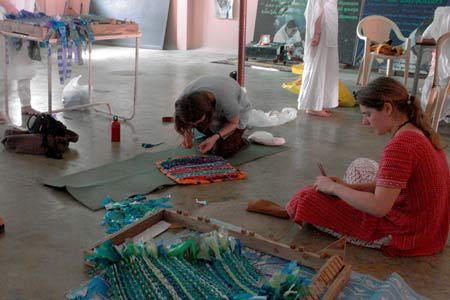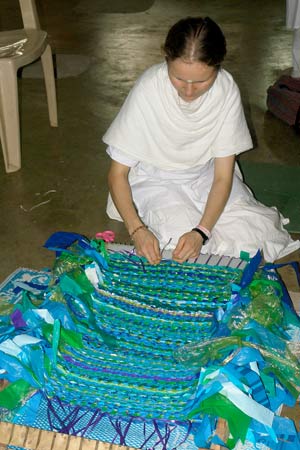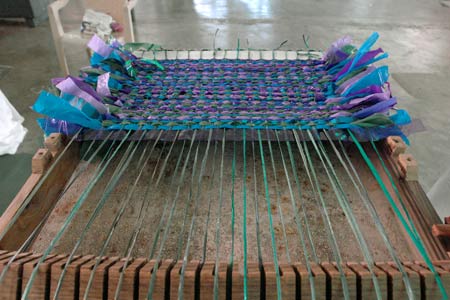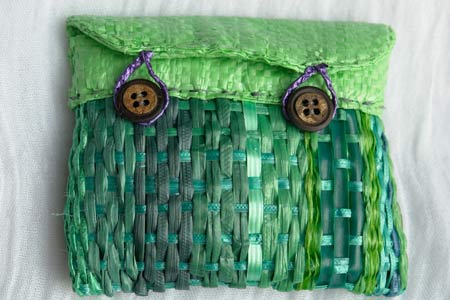

For the past month, members of Ayudh Europe have been staying in Amritapuri and have been lucky enough to be involved in the Ashrams’ ‘plastic project’ as part of their daily Seva. This project was started by a resident of the ashram who was inspired to re-use the waste plastic that she saw around her. Sorting the waste plastics from the rubbish bins is no small task, especially as every item must be hand washed, sterilized and dried. A number of products have been created from these simple materials, ranging from purses and wallets to shoulder bags and meditation mats. Each one is unique, brightly colored and painstakingly produced to a high standard. Techniques such as knitting, sewing, weaving and crocheting are used to create very attractive items. Children especially love to take part in this Seva and it is a great way for them to learn about recycling. Many of the devotees who have taken part have been so impressed that they’ve taken the idea home and started their own plastic projects.
Meanwhile at the ashram, the popularity of the products has meant that it has been difficult to meet the demand! It is not uncommon to see Ashramites using their recycled accessories and it seems there is a lot of support for the project here, especially from Amma herself! When presented with a handmade recycled bag, She held it up high for all to see and said: “You may think it is only a small gesture, but through this the hearts of individuals blossom and others are inspired to follow. This can lead to significant changes in society.”

Sorting plastic from the waste bins is not the most glamorous job, but it really makes you realize what a mess we leave behind. We find ourselves thinking twice when reaching for that plastic-wrapped packet of biscuits or chocolate bar…. The reality is that, while the snack will vanish in 5 minutes (or less!), the plastic will still be around even after we’re gone from the planet. Plastic bags take at least 300 years to break down into smaller particles. This is not a good legacy to be leaving for future generations. If we can think of solutions now, then perhaps we can lower the impact of this plastic epidemic that is sweeping the planet.
In one of her talks, Amma said that, because plastic is so prevalent in the world nowadays, birds are even starting to use waste plastic to build their nests! Also, in some of the more polluted areas of the Pacific Ocean, marine animals easily mistake plastic for food, which often leads to death because it cannot be digested.

By recycling plastic into desirable goods, we can not only prevent some plastic from polluting the natural environment and raise money for good causes, but most importantly raise awareness about the plastic problem. Perhaps people might be inspired, like we were, to think twice about buying plastic wrapped products – thus helping to bring an end to this problem.
This project and has really opened eyes to what is possible with a little bit of imagination! At this years AYUDH Europe Youth Exchange, watch out for the plastic recycling workshop- we hope it will be a real inspiration to everyone!
– Dass
